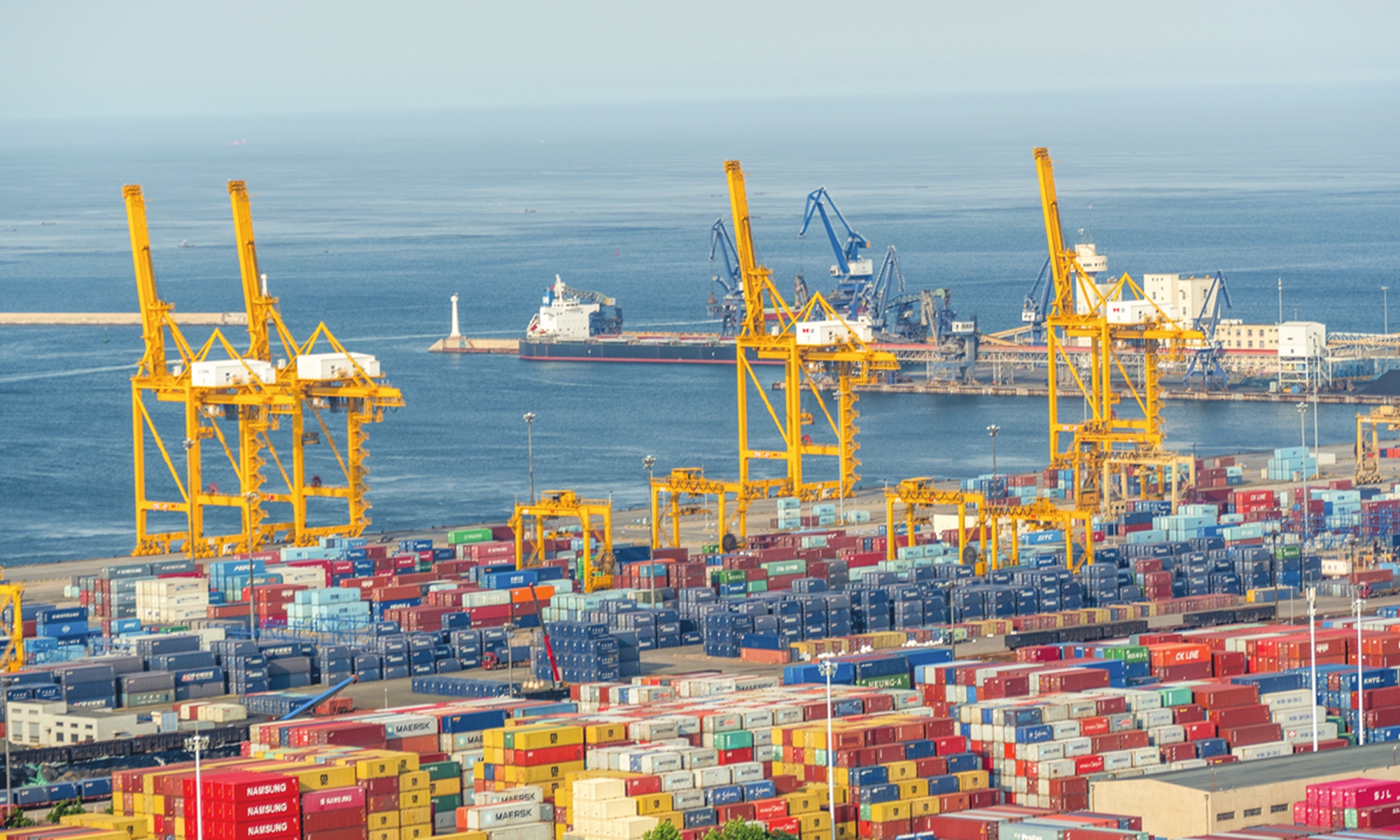
Consumers taste coffee at the Starbucks Reserve Roastery in Jing'an District, Shanghai on January 14, 2025. Photo: VCG
When US coffee chain Starbucks first entered the Chinese market, only consumers in major cities like Beijing were able to frequent its stores. Today, residents in more than 1,000 county-level regions across China can enjoy the firm's coffees.
Following steady expansion in the Chinese market over the past 20 plus years, the number of Starbucks stores in China has reached 7,758 at the end of the quarter ending March 30. And with such expansion comes strong revenue growth. During the quarter, Starbucks reported that its revenue in the Chinese market reached $739.7 million, up 5 percent year-on-year, according to a press release the company sent to the Global Times.
Stronger sales
"In the second quarter of fiscal year 2025, we revitalized growth by focusing on core businesses: Financial indicators performed excellently and brand value continued to increase," Liu Wenjuan, CEO of Starbucks China, was quoted in the Chinese press release as saying.
Starbucks is hardly alone among US companies that are seeing strong sales performances in the Chinese market, according to latest earnings reports released by multiple US businesses.
For example, US truck engine maker Cummins Inc reported results for the first quarter of 2025 on Monday US time, showing a 1 percent decline in North American sales and a 5 percent drop in international revenue, driven by weaker demand in Latin America and the Asia-Pacific. Notably, the company pointed out that those declines were partially offset by stronger sales in China.
According to an article on Yahoo Finance on Tuesday, Cummins saw its China revenue increase 9 percent to $1.8 billion, compared to a 3 percent drop in overall revenue.
US beverage maker Coca-Cola Co said its unit case volume grew 2 percent in the first quarter of 2025, led by India, China and Brazil. In China, during the Lunar New Year, activations featured Trademark Coca-Cola, Sprite and Minute Maid. The system contributed to high single-digit volume growth in the quarter, according to the company's financial results.
During the earnings call, Coca-Cola CEO James Quincey said that the company's growth in China stemmed from efforts made last year to streamline its product portfolio and reposition certain brands. In China, the focus on improving execution is paying off and has led to volume growth, according to a press release the company sent to the Global Times.
The strong growth highlighted the great importance of the Chinese market to US businesses, in that the success of many US businesses is inseparable from their operations in China, Zhou Mi, a senior research fellow at the Chinese Academy of International Trade and Economic Cooperation, told the Global Times on Tuesday.
Zhou noted that China's strong first-quarter economic performance and proactive policies to boost domestic consumption have helped relevant US businesses achieve strong sales growth. And with the largest middle-income group globally, China's vast consumer market will continue to offer huge growth potential for US businesses, he said.
In stark contrast to strong growth and vast potential offered by China, growing concerns and uncertainty permeate the US business community due to the US government's various protectionist policies and crackdowns on normal China-US commercial ties, including imposing hefty additional tariffs.
Many US companies have expressed grave concerns over the adverse impact of the US tariffs in their latest earnings reports. For example, US automaker Ford said in its first-quarter earnings report that the US' tariffs could cost it about $1.5 billion in 2025.
"Given the volatile macroeconomic environment and evolving US tariff landscape, it is difficult to predict consumer spending and Mattel's US sales in the remainder of the year and holiday season," Barbie maker Mattel said in its latest quarterly report.
The US government's misuse of tariffs will likely cause serious long-term harm to the US economy - slowing growth, weakening the global competitiveness of US companies, increasing the burden on ordinary consumers, and destabilizing the job market, said Su Qingyi, an international trade and world politics expert with the Chinese Academy of Social Sciences.
"Many US companies hold key positions in global supply chains. But they rely on imports, including raw materials and components, to maintain their production and operation cost advantages. And higher import costs from additional tariffs are squeezing profits, forcing companies to either raise prices or reduce expenses," Su told the Global Times.
Moreover, due to the mounting uncertainties and growing political and legal instability in the US, reasonable foreign investors will unlikely make rash investments in the US, according to Hu Jianguo, a professor at Tianjin-based Nankai University. "US investors may even consider investment in countries with more stable business environments," Hu told the Global Times.
Notably, US businesses have maintained positive sentiment toward the Chinese market. A report released in February by the American Chamber of Commerce in South China showed that looking ahead to 2025, 76 percent of foreign companies surveyed intend to reinvest in China, with a notable 74 percent of the US companies planning reinvestments, up 11 percentage points year-on-year, according to Xinhua.
Continued expansion
While some US politicians have been attempting to restrict US businesses' operations in China, many US companies continue to invest and expand in the Chinese market.
For example, US oil giant Exxon Mobil said in its first quarter earnings that the company recently commenced operations ahead of schedule and under budget at its China Chemical Complex. Once fully operational, the facility will produce up to 1.6 million tons of polyethylene and 850,000 tons of polypropylene annually, with over 75 percent of its capacity dedicated to high-value products, according to the company's website.
In February, US electric carmaker Tesla's new Megafactory in Shanghai launched production, marking a significant expansion of the company's presence in China. And then just over a month after the production launch, the Megafactory exported its first batch of Megapack energy-storage batteries, according to Xinhua.
Such expansion by US businesses in the Chinese market also fully reflects China's continuous opening-up, in sharp contrast to the US' protectionist approach, experts said.
"Amid rising unilateralism and protectionism in the US, China's firm commitment to expanding high-level opening-up will help strengthen cooperation with the rest of the world and contribute to global joint development and prosperity," Zhou said.
Going forward, despite some US politicians' so-called "decoupling" attempts, many US businesses, including Starbucks, have said they will continue to expand in the Chinese markets.
"In the future, we will focus on the long-term development of the Chinese market and continue to promote the healthy growth of key business data. We are full of confidence in the future development of Starbucks in China," Liu, co-chief executive of Starbucks China, said in the press release.




